25 start with C start with C

Each essay looks at the role of a particular photographic genre in the making of modern Latin American identities. Articles cover the adaptation in late-nineteenth-century Oaxaca of European type photography as a tool of imperialist enterprise and science, state consolidation, and consumer culture; the use of portrait photography by the K’iche Mayans of Quetzaltenango; and the family album—made up of snapshots, postcards, and other memorabilia—as a historical document.
Contributors. Greg Grandin, Daniel James, Mirta Zaida Lobato, Deborah Poole
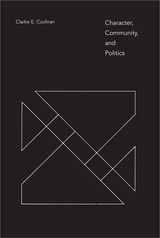
The revival of political philosophy has frequently assumed that a theory of human well-being and fulfillment is necessary, preoccupied with questions of epistemology and technical conceptual analysis. In instances where the nature of the human good is considered, the paradigm of autonomous individualism customarily dominates. In Character, Community, and Politics, Cochran moves away from these prevailing ideas to develop a communal theory of political order, helping to redefine a number of fundamental, but often neglected, ideas. Chief among them are commitment, community, responsibility, and character—concepts Cochran develops through discussions of authority, freedom, pluralism, and the common good.
Drawing on a wide variety of fields, such as philosophy, ethics, literature, moral theology, and sociology, the author renews these concepts to outline a theory of human life and political order distinct from sclerotic categories such as conservatism, socialism, radicalism, or Marxism.
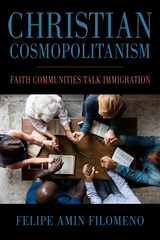
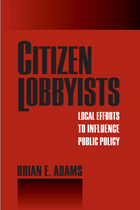
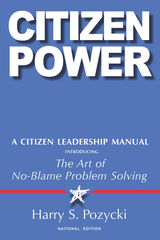
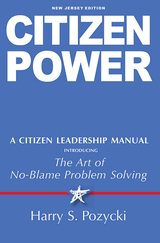
Citizen Power portal (https://thecitizenscampaign.org/register/).
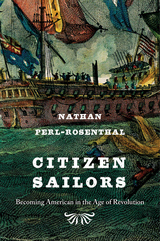
In the decades after the United States formally declared its independence in 1776, Americans struggled to gain recognition of their new republic and their rights as citizens. None had to fight harder than the nation’s seamen, whose labor took them far from home and deep into the Atlantic world. Citizen Sailors tells the story of how their efforts to become American at sea in the midst of war and revolution created the first national, racially inclusive model of United States citizenship.
Nathan Perl-Rosenthal immerses us in sailors’ pursuit of safe passage through the ocean world during the turbulent age of revolution. Challenged by British press-gangs and French privateersmen, who considered them Britons and rejected their citizenship claims, American seamen demanded that the U.S. government take action to protect them. In response, federal leaders created a system of national identification documents for sailors and issued them to tens of thousands of mariners of all races—nearly a century before such credentials came into wider use.
Citizenship for American sailors was strikingly ahead of its time: it marked the federal government’s most extensive foray into defining the boundaries of national belonging until the Civil War era, and the government’s most explicit recognition of black Americans’ equal membership as well. This remarkable system succeeded in safeguarding seafarers, but it fell victim to rising racism and nativism after 1815. Not until the twentieth century would the United States again embrace such an inclusive vision of American nationhood.
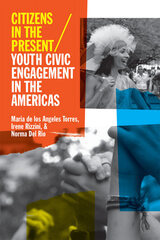

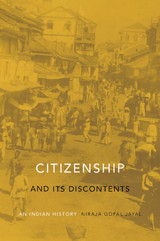
Breaking new ground in scholarship, Niraja Jayal writes the first history of citizenship in the largest democracy in the world—India. Unlike the mature democracies of the west, India began as a true republic of equals with a complex architecture of citizenship rights that was sensitive to the many hierarchies of Indian society. In this provocative biography of the defining aspiration of modern India, Jayal shows how the progressive civic ideals embodied in the constitution have been challenged by exclusions based on social and economic inequality, and sometimes also, paradoxically, undermined by its own policies of inclusion.
Citizenship and Its Discontents explores a century of contestations over citizenship from the colonial period to the present, analyzing evolving conceptions of citizenship as legal status, as rights, and as identity. The early optimism that a new India could be fashioned out of an unequal and diverse society led to a formally inclusive legal membership, an impulse to social and economic rights, and group-differentiated citizenship. Today, these policies to create a civic community of equals are losing support in a climate of social intolerance and weak solidarity. Once seen by Western political scientists as an anomaly, India today is a site where every major theoretical debate about citizenship is being enacted in practice, and one that no global discussion of the subject can afford to ignore.

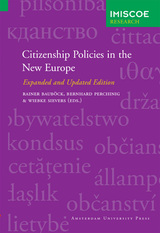
The two most recent expansions to the EU, in May 2004 and January 2007, have had a significant impact on contemporary conceptions of statehood, nation-building, and citizenship within the Union. This volume outlines the citizenship laws in each of the twelve new countries as well as in the accession states of Croatia and Turkey.

Did women have a civic identity in eighteenth-century France? In Citoyennes: Women and the Ideal of Citizenship in Eighteenth-Century France, Annie Smart contends that they did. While previous scholarship has emphasized the ideal of domestic motherhood or the image of the republican mother, Smart argues persuasively that many pre-revolutionary and revolutionary texts created another ideal for women–the ideal of civic motherhood. Smart asserts that women were portrayed as possessing civic virtue, and as promoting the values and ideals of the public sphere.
Contemporary critics have theorized that the eighteenth-century ideal of the Republic intentionally excluded women from the public sphere. According to this perspective, a discourse of “Rousseauean” domestic motherhood stripped women of an active civic identity, and limited their role to breastfeeding and childcare. Eighteenth-century France marked thus the division between a male public sphere of political action and a female private sphere of the home.
Citoyennes challenges this position and offers an alternative model of female identity. This interdisciplinary study brings together a variety of genres to demonstrate convincingly that women were portrayed as civic individuals. Using foundational texts such as Jean-Jacques Rousseau’s Emile, or on Education (1762), revolutionary gouaches of Lesueur, and vaudeville plays of Year II of the Republic (1793/1794), this study brilliantly shows that in text and image, women were represented as devoted to both the public good and their families.
In addition, Citoyennes offers an innovative interpretation of the home. Through re-examining sphere theory, this study challenges the tendency to equate the home with private concerns, and shows that the home can function as a site for both private life and civic identity.
Citoyennes breaks new ground, for it both rectifies the ideal of domestic Rousseauean motherhood, and brings a fuller understanding to how female civic identity operated in important French texts and images.
Published by University of Delaware Press. Distributed worldwide by Rutgers University Press.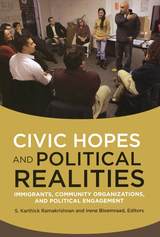
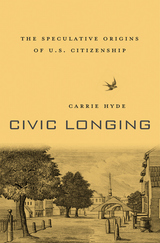
Citizenship defines the U.S. political experiment, but the modern legal category that it now names is a relatively recent invention. There was no Constitutional definition of citizenship until the ratification of the Fourteenth Amendment in 1868, almost a century after the Declaration of Independence. Civic Longing looks at the fascinating prehistory of U.S. citizenship in the years between the Revolution and the Civil War, when the cultural and juridical meaning of citizenship—as much as its scope—was still up for grabs. Carrie Hyde recovers the numerous cultural forms through which the meaning of citizenship was provisionally made and remade in the early United States.
Civic Longing offers the first historically grounded account of the formative political power of the imaginative traditions that shaped early debates about citizenship. In the absence of a centralized legal definition of citizenship, Hyde shows, politicians and writers regularly turned to a number of highly speculative traditions—political philosophy, Christian theology, natural law, fiction, and didactic literature—to authorize visions of what citizenship was or ought to be. These speculative traditions sustained an idealized image of citizenship by imagining it from its outer limits, from the point of view of its “negative civic exemplars”—expatriates, slaves, traitors, and alienated subjects.
By recovering the strange, idiosyncratic meanings of citizenship in the early United States, Hyde provides a powerful critique of originalism, and challenges anachronistic assumptions that read the definition of citizenship backward from its consolidation in the mid-nineteenth century as jus soli or birthright citizenship.
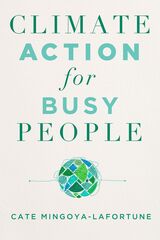
Climate Action for Busy People is a hopeful and realistic roadmap for individuals and groups who want to boost climate preparedness and move the needle towards environmental justice. Drawing from her professional and personal success in climate adaptation and community organizing, Cate Mingoya-LaFortune begins with a brief history of why our communities look the way they do (spoiler, it’s not an accident!) and how that affects how vulnerable we are to climate risks. Each chapter will help readers scale up their actions, from identifying climate solutions that an individual or small group can pull off in a handful of weekends, like tree plantings or depaving parties, to advocating for change at the municipal level through coalition-building and data collection. It’s not too late for people of all ages and skill levels to create climate safe neighborhoods.
Climate Action for Busy People is an invaluable guide for anyone who wants to make lasting and equitable improvements that will make their communities climate resilient.
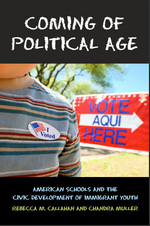
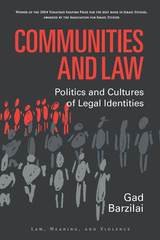
Gad Barzilai addresses such questions as: What is a communal legal culture, and what is its relevance for relations between state and society in the midst of globalization? How do nonliberal communal legal cultures interact with transnational American-led liberalism? Is current liberalism, with its emphasis on individual rights, litigation, and adjudication, sufficient to protect pluralism and multiculturalism? Why should democracies encourage the collective rights of nonruling communities and protect nonliberal communal cultures in principle and in practice? He looks at Arab-Palestinians, feminists, and ultra-Orthodox Jews in Israel as examples of the types of communities discussed. Communities and Law contributes to our understanding of the severe tensions between democracies, on the one hand, and the challenge of their minority communities, on the other, and suggests a path toward resolving the resulting critical issues.
Gad Barzilai is Professor of Political Science and Law and Co-Director of the Law, Politics and Society Program, Department of Political Science, Tel Aviv University.
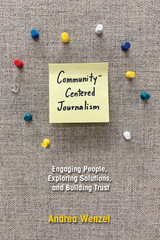
Andrea Wenzel models new practices of community-centered journalism that build trust across boundaries of politics, race, and class, and prioritize solutions while engaging the full range of local stakeholders. Informed by case studies from rural, suburban, and urban settings, Wenzel's blueprint reshapes journalism norms and creates vigorous storytelling networks between all parts of a community. Envisioning a portable, rather than scalable, process, Wenzel proposes a community-centered journalism that, once implemented, will strengthen lines of local communication, reinvigorate civic participation, and forge a trusting partnership between media and the people they cover.
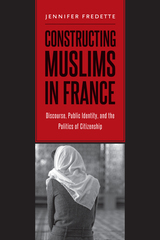
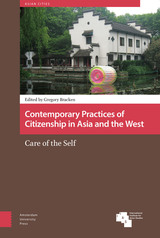
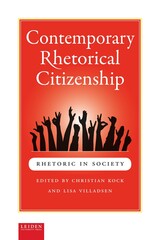
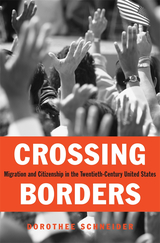
Aspiring immigrants to the United States make many separate border crossings in their quest to become Americans—in their home towns, ports of departure, U.S. border stations, and in American neighborhoods, courthouses, and schools. In a book of remarkable breadth, Dorothee Schneider covers both the immigrants’ experience of their passage from an old society to a new one and American policymakers’ debates over admission to the United States and citizenship. Bringing together the separate histories of Irish, English, German, Italian, Jewish, Chinese, Japanese, and Mexican immigrants, the book opens up a fresh view of immigrant aspirations and government responses.
Ingenuity and courage emerge repeatedly from these stories, as immigrants adapted their particular resources, especially social networks, to make migration and citizenship successful on their own terms. While officials argued over immigrants’ fitness for admission and citizenship, immigrant communities forced the government to alter the meaning of race, class, and gender as criteria for admission. Women in particular made a long transition from dependence on men to shapers of their own destinies.
Schneider aims to relate the immigrant experience as a totality across many borders. By including immigrant voices as well as U.S. policies and laws, she provides a truly transnational history that offers valuable perspectives on current debates over immigration.
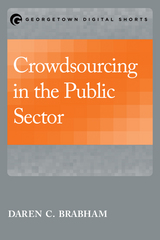
Crowdsourcing is a term that was coined in 2006 to describe how the commercial sector was beginning to outsource problems or tasks to the public through an open call for solutions over the internet or social media. Crowdsourcing works to generate new ideas or develop innovative solutions to problems by drawing on the wisdom of the many rather than the few. US local government experimented with rudimentary crowdsourcing strategies as early as 1989, but in the last few years local, state, and federal government have increasingly turned to crowdsourcing to enhance citizen participation in problem solving, setting priorities, and decision making. While crowdsourcing in the public sector holds much promise and is part of a larger movement toward more citizen participation in democratic government, many challenges, especially legal and ethical issues, need to be addressed to successfully adapt it for use in the public sector.
Daren C. Brabham has been at the forefront of the academic study of crowdsourcing. This book includes extensive interviews with public and private sector managers who have used crowdsourcing. Brabham concludes with a list of the top ten best practices for public managers.
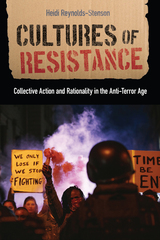
Cultures of Resistance provides new insight on a long-standing question: whether government efforts to repress social movements produce a chilling effect on dissent, or backfire and spur greater mobilization. In recent decades, the U.S. government’s repressive capacity has expanded dramatically, as the legal, technological, and bureaucratic tools wielded by agents of the state have become increasingly powerful. Today, more than ever, it is critical to understand how repression impacts the freedom to dissent and collectively express political grievances. Through analysis of activists’ rich and often deeply moving experiences of repression and resistance, the book uncovers key group processes that shape how individuals understand, experience, and weigh these risks of participating in collective action. Qualitative and quantitative analyses demonstrate that, following experiences of state repression, the achievement or breakdown of these group processes, not the type or severity of repression experienced, best explain why some individuals persist while others disengage. In doing so, the book bridges prevailing theoretical divides in social movement research by illuminating how individual rationality is collectively constructed, mediated, and obscured by protest group culture.
READERS
Browse our collection.
PUBLISHERS
See BiblioVault's publisher services.
STUDENT SERVICES
Files for college accessibility offices.
UChicago Accessibility Resources
home | accessibility | search | about | contact us
BiblioVault ® 2001 - 2024
The University of Chicago Press









